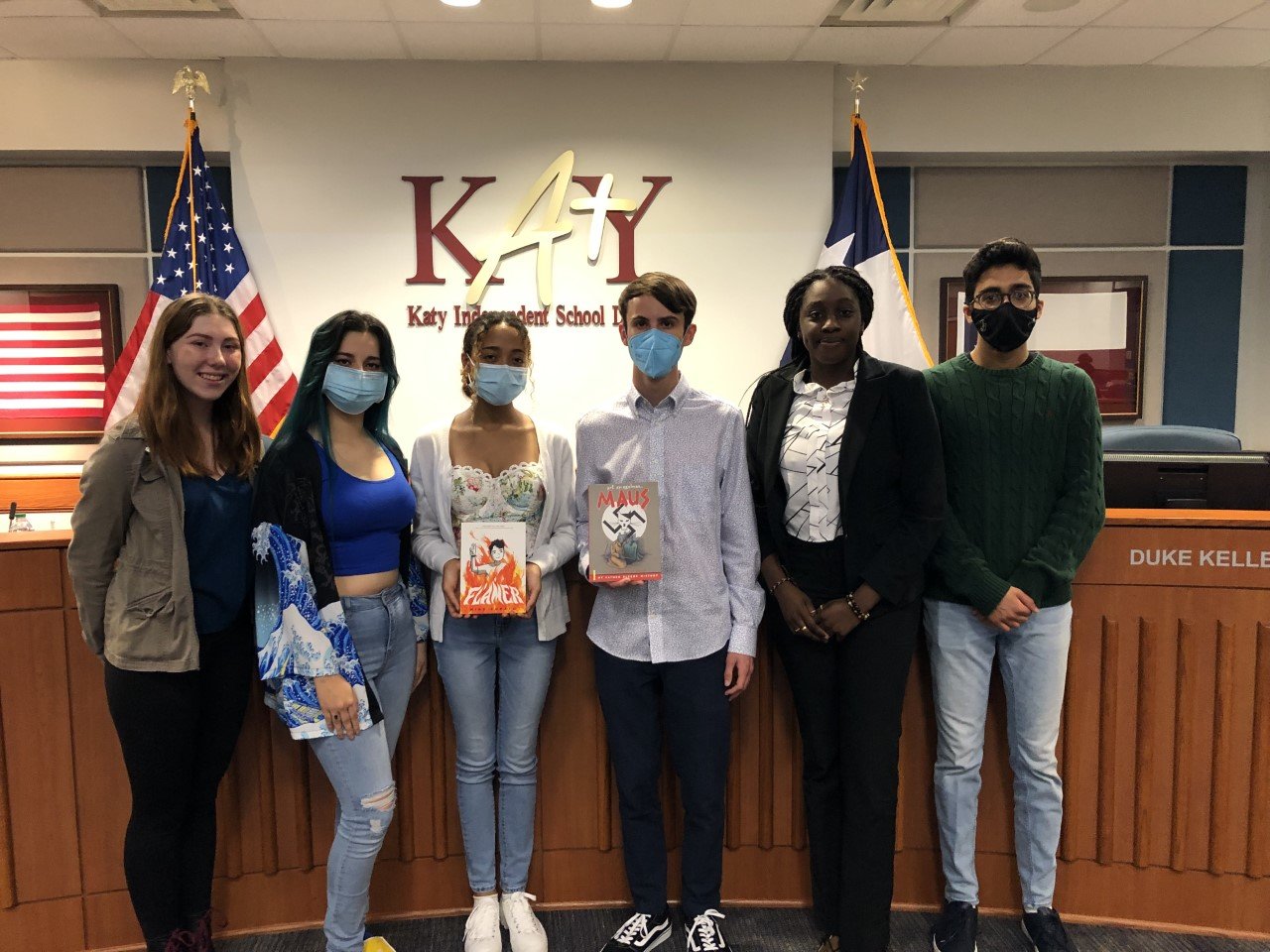Katy ISD students speak out against pulling books from library shelves
For six Katy Independent School District students speaking out against removing certain books from school libraries, it’s a matter of learning by doing.
This item is available in full to subscribers.
Attention subscribers
To continue reading, you will need to either log in to your subscriber account, or purchase a new subscription.
If you are a current print subscriber, you can set up a free website account and connect your subscription to it by clicking here.
If you are a digital subscriber with an active, online-only subscription then you already have an account here. Just reset your password if you've not yet logged in to your account on this new site.
Otherwise, click here to view your options for subscribing.
Please log in to continue |
Katy ISD students speak out against pulling books from library shelves
For six Katy Independent School District students speaking out against removing certain books from school libraries, it’s a matter of learning by doing.
The debate over removing books and blocking access to selected LGBTQ+ (lesbian, gay, bisexual, transgender, queer) websites through school computers is happening across the country. For one local student, things began happening when they spoke against censorship last November at a Katy school trustees meeting.
Cameron Samuels is a Seven Lakes High School senior who wants to do “something political” after graduation. But for now, they—as Samuels describes themself—have been a regular speaker at school board meetings.
Samuels does more than talk. Samuels and some fellow students from other Katy ISD high schools have distributed over 500 banned books to students at district high schools. In February, they staged a Katy ISD “FReadom Week,” with books such as Beloved, a 1987 by Nobel Prize-winning author Toni Morrison, being distributed to students. The novel is based on a true story about a Black slave woman who escaped with her family from a Kentucky plantation.
The debates continue. The district is considering whether to pull Maus, a 1991 book by Art Spiegelman. Maus is a nonfiction book about the Holocaust and is designed as a graphic novel. A district official said Monday that a decision on whether to pull Maus was expected later this week.
As of this week, the district has removed 10 books from its schools. To see the district’s list of what books have been removed, and why, visit the website https://bit.ly/3uBQZ4r.
Samuels said their efforts have made an impact in the Seven Lakes student body.
“People are talking about censorship, fearing what will happen when resources are not accessible, and right now they are not accessible,” Samuels said.
Gabriel Izu is a Taylor High School senior who wants to major in political science and work in legislation after she graduates. She said the reaction to the matter has been predominantly positive.
“Those who are opposed to the banning of books are more vocal, which is really nice,” Izu said. “I actually had a teacher hug me because this is my way of coming out. It was really nice when it came out to have a school authority express support and give me tips on what could be done to work around and address this ban.”
Alison Franks is a Jordan High School junior. She said the reaction at her school to their efforts have been predominantly positive.
“I believe I surround myself with people who are very supportive of what I am doing,” Franks said. “Even with people who have different views, they are curious. Students are very much trying to educate themselves. I believe education is the only cure for what is going on in our district. You can’t fight against what you don’t know about. You have to be educated. Lots of students are LGBTQ, black or different ethnicities.”
Peniel Otto, a Cinco Ranch High School senior who hopes to become either a criminal justice or corporate attorney, reported a different reaction at her high school. She said there was not much reaction at Cinco Ranch. However, she also spends time at the Miller Career and Technology Center, where there are more conversations.
“I never wanted to be a politician, but having had talks with people changed my ideas about how we can change the stigma in a positive light,” Otto said.
Jaagat Prashar, a Jordan High School sophomore, said one doesn’t get complete respect on an issue “until you get up there and start speaking and doing something.”
Prashar is undecided about what he wants to do after graduation, though he’s looking at studying computer science or political science.
The students know not everyone agrees with their viewpoint about pulling the books and blocking some websites. The district's standard for removing a book from a school library shelf is that it be “pervasively vulgar.” In previous meetings, critics have urged the board to remove books they thought met that standard. The district in December launched an app that enables feedback on books the district purchases.
Prashar said opponents couldn’t be avoided.
“It’s more a byproduct of progress and it kind of motivates you to keep pushing,” Prashar said. “I like to look at the positive side of things, and I’m grateful for the support we have.”
Keywords
book banning, Katy ISD, Katy ISD Board of Trustees







